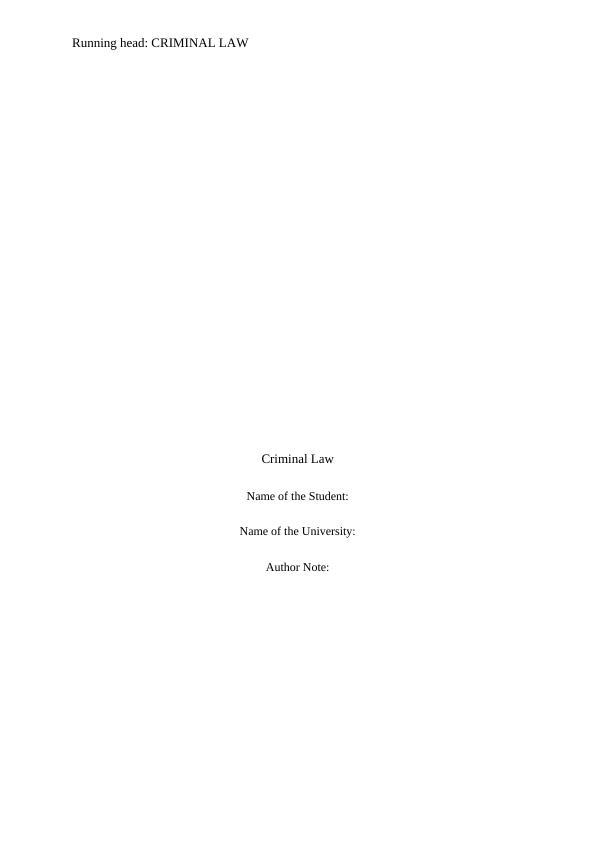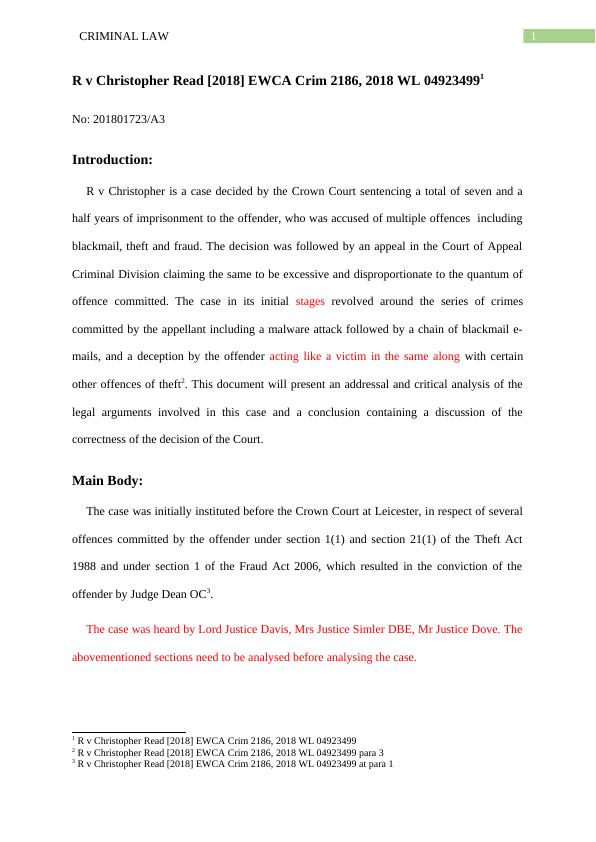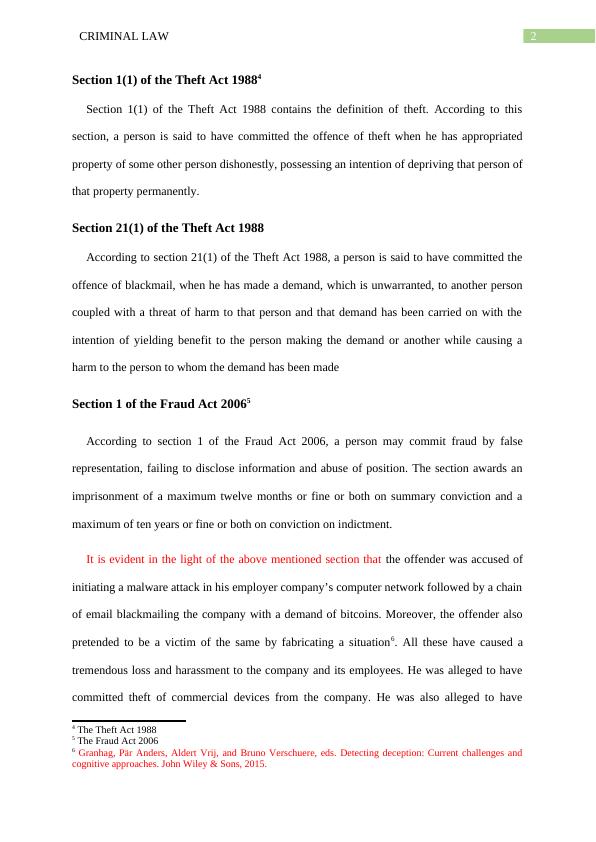Critical Analysis of R v Christopher Read Case under Criminal Law
7 Pages1879 Words426 Views
Added on 2023-05-27
About This Document
This document presents a critical analysis of the legal arguments involved in R v Christopher Read case under Criminal Law. The case involved multiple offences including blackmail, theft, and fraud. The document also discusses the correctness of the decision of the Court.
Critical Analysis of R v Christopher Read Case under Criminal Law
Added on 2023-05-27
ShareRelated Documents
End of preview
Want to access all the pages? Upload your documents or become a member.
Bundles for First and Second Ground Case Study 2022
|4
|597
|32
Reforming Theft: Taking Without Consent
|7
|1347
|22
Assignment - Company Law LW300
|10
|2474
|70
The hypnothic Suprendo solicitor
|8
|1507
|230
CRS 2221 –Restorative Justice Case Study 2022
|14
|3091
|32
ASSESSMENT 1 Legislation relating to the theft
|12
|3018
|377



